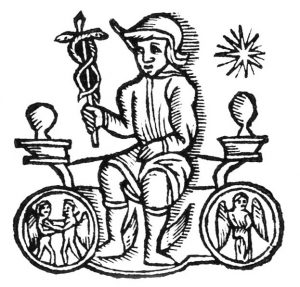About Renaissance Studies at the University of Chicago
A diverse group of scholars working across disciplines to foster critical engagement with Renaissance history and culture.
Wars and sieges, epics and sonnets, priests and merchants, scholarship and magic: the Renaissance was an age of accelerating transformation, which saw the rise of vernacular literature, the birth of humanism, the advent of polyphonic music, the arrival of printing, new forms of weaponry and warfare, revolutions in trade and banking, the advent of political science, breathtaking artistic innovations, first applications of the scientific method, Europe’s first encounters with the New World, and a classical revival whose artistic and literary legacy transformed antiquity into a language of power recognized around the globe. Renaissance studies consider not only Europe and the Ottoman and Mediterranean worlds, but also the commercial, imperial, and missionary networks whose threads of cultural exchange stretched from Mexico to Japan. Collectively our work examines society, art, literature, and the political, economic, and historical experiences of the centuries after the Black Death, through literary lights like Dante and Shakespeare, intellectual innovators like Luther and Descartes, powerful leaders like Lorenzo de Medici and Queen Elizabeth I, and infamous radicals like Machiavelli and Thomas Hobbes.
The University of Chicago has more than thirty faculty who work on the Renaissance, spread across the Humanities, Social Sciences, Divinity School, and Law School. Together we offer a robust assortment of courses at the undergraduate and graduate levels, as well as research opportunities, and mentoring for undergraduate and graduate students.
For undergraduates, a College Course Cluster offers students who take Renaissance courses priority registering for more, while abroad programs offer study opportunities in eleven European cities, and six different Renaissance-related student groups gather to watch and perform music and plays, build and test technologies, help organize events such as our annual Campus Renaissance Festival, and visit museums and research libraries with faculty on social field trips.
For graduate students, numerous affiliated centers, institutes, libraries, and museums both on campus and off campus offer research and travel support, while two dedicated Renaissance-related graduate workshops offer regular opportunities to present research and connect with peers and faculty, and our interdisciplinary cohort of graduate students offers a supportive social community and peer mentoring, on campus and abroad.
For faculty and researchers, the university offers numerous funding opportunities including several postdoctoral research programs, teaching opportunities in Barcelona, Paris, Rome, Vienna, and other historic cities, a world-class rare books library, and on campus centers which support research and teaching. Our campus also hosts the Chicago Area Faculty Renaissance Seminar, a monthly gathering of Renaissance scholars from the greater Chicago and tri-state area, which has met regularly since the 1950s for friendly dinners followed by a presentation of fresh research.
On this webpage, you will find information about our faculty and students, groups and workshops, programs of study at the undergraduate, MA, and Ph.D. levels, our frequently taught courses and courses for the current academic year, selected faculty publications, articles about program highlights, and a calendar of upcoming and past events.
Contact our organizers for more information.
Below you can sign up for our general Renaissance Studies mailing list, open to anyone in the University of Chicago community or beyond who wants to keep up with news about the program. You can also contact the website managers to request to be added to the specific lists for undergraduates, for graduate students, or for member faculty, to receive details about activities just for you.
